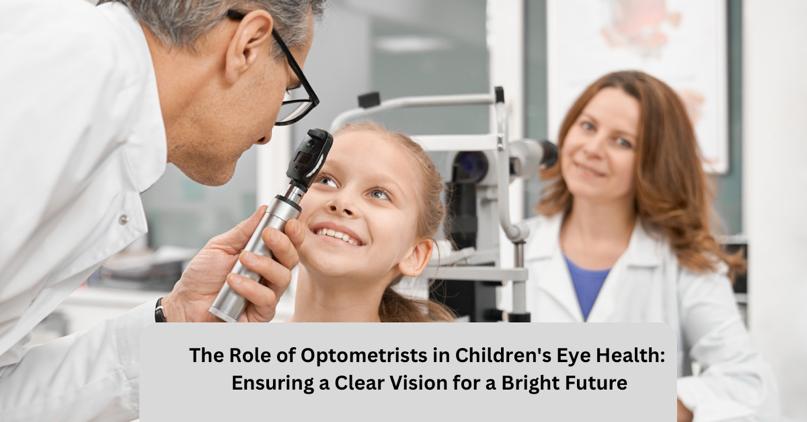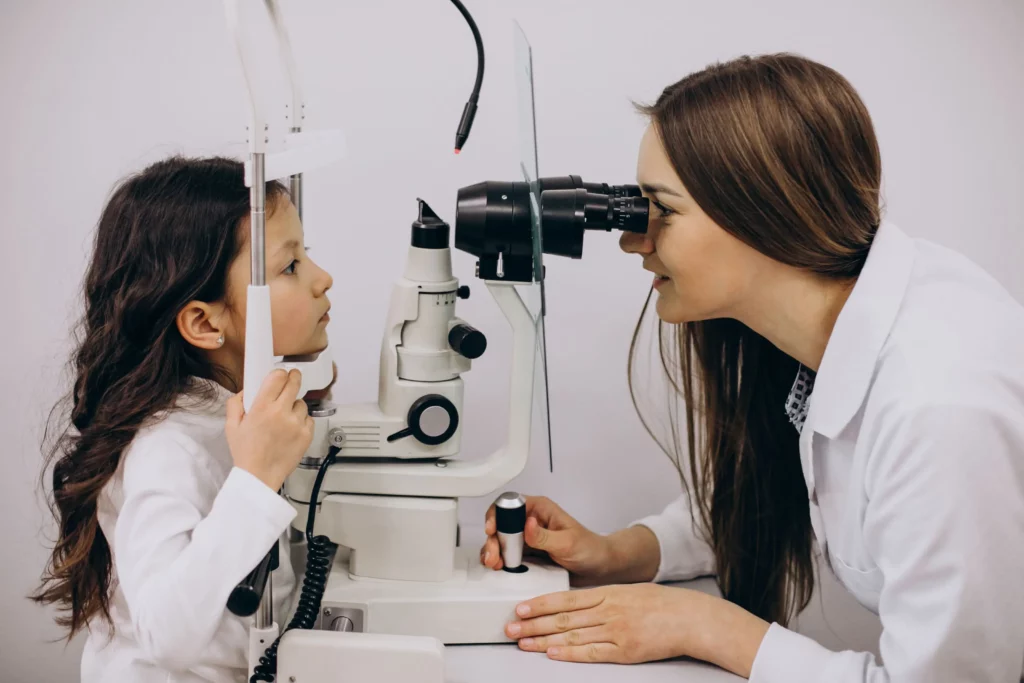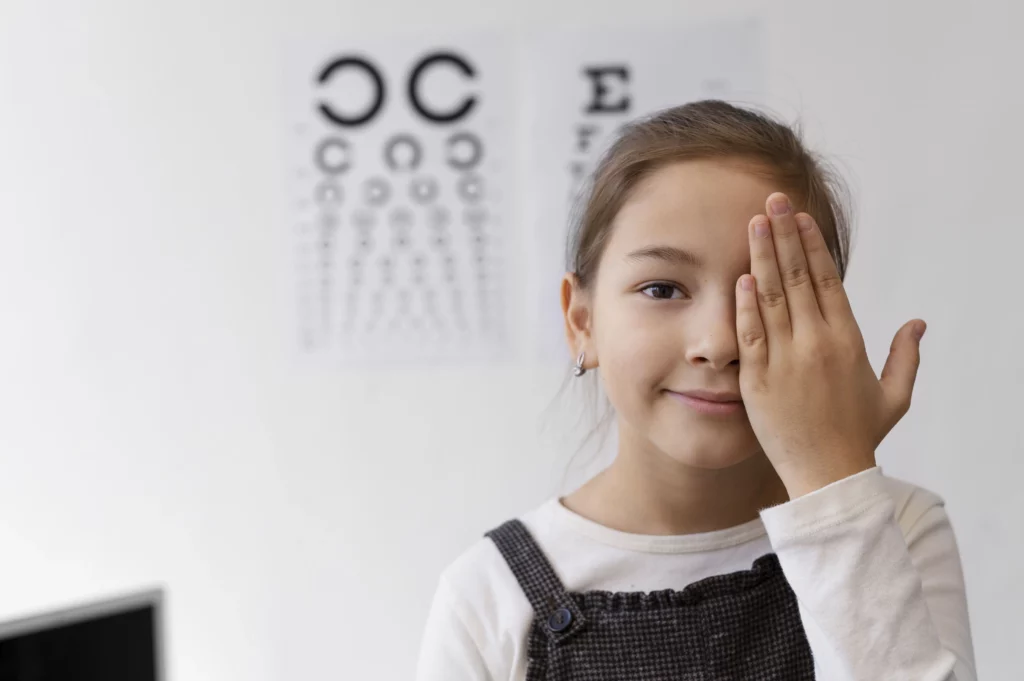The Role of Optometrists in Children’s Eye Health: Ensuring a Clear Vision for a Bright Future

Introduction:
Good vision plays a crucial role in a child’s overall development and academic success. As parents, we strive to provide the best care for our children, and that includes prioritising their eye health. In this blog, we will explore the significant role optometrists play in safeguarding children’s vision and ensuring their eyes are healthy for a bright future.

1. The Importance of Early Eye Exams:
Early detection and intervention are key to addressing potential vision problems in children. Discuss the significance of scheduling comprehensive eye exams for children, even before they start school. The optometrists can help in detecting common vision issues such as nearsightedness, farsightedness, astigmatism, and amblyopia (lazy eye) at an early stage.
2. Detecting Vision Problems in Infants and Toddlers:
Provide valuable insights into how optometrists use specialized techniques and equipment to examine the eyes of infants and toddlers.The importance of assessing visual development, eye teaming, and eye movement skills during these exams. Discuss the potential signs and symptoms of vision problems in this age group that parents should be aware of.
3. Addressing Common Childhood Vision Issues:
Explore common vision problems that children may experience, such as strabismus (crossed eyes), amblyopia (lazy eye), and convergence insufficiency. Explain how optometrists can diagnose and manage these conditions through a combination of vision therapy, corrective lenses, and other appropriate treatments. They highlight the importance of early intervention in maximising treatment success.

4. Providing Vision Correction Solutions:
Discuss the various vision correction options available for children, including glasses and contact lenses. Optometrists play a key role in helping children choose the right eyewear that meets their visual needs, preferences, and lifestyle. Provide tips for parents on encouraging their children to embrace and take care of their eyewear.
5. Educating Parents and Caregivers:
Optometrists play a vital role in educating parents and caregivers about proper eye care for children. They explain the significance of providing guidance on topics such as eye safety, healthy visual habits, and the importance of regular eye breaks when using digital devices. It includes practical tips and recommendations for maintaining good eye health in children.
6. Collaboration with Other Healthcare Professionals:
Highlighting the collaborative nature of optometry in children’s eye health. Optometrists work closely with paediatricians, school nurses, and other healthcare professionals to ensure comprehensive care. They emphasise the importance of communication and regular eye health assessments throughout a child’s development.

Conclusion:
Optometrists are key players in safeguarding children’s eye health and optimising their visual potential. Regular eye exams, early detection of vision problems, and appropriate interventions are essential for setting children on the path to success. By understanding the role of optometrists in children’s eye health, parents can take proactive steps to prioritise their child’s vision and overall well-being.
Book your appointment now for all eye-related services.
Your Vision Our Focus


